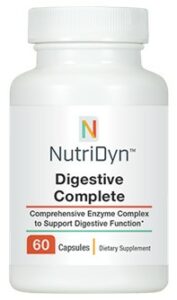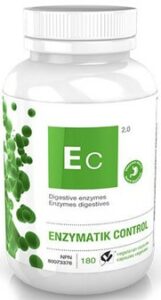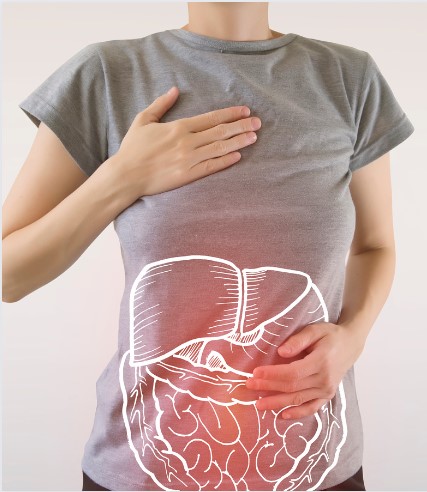Digestive Enzymes and Their Role in Health
Digestive enzymes are one of the most crucial elements that help digest your food. They work together with HCl to ensure that the food you consume can be absorbed. Your food contains a complex structure that your gut cannot absorb easily. The three main components of anything you eat include sugars, proteins, and fats. Likewise, the three main categories of digestive enzymes are: sugar-digesting enzymes, protein-digesting enzymes (proteases), and fat-digesting enzymes (lipases).
Digestive enzymes help break down complex nutritional components of your food into absorbable food components.
Your gut contains numerous digestive enzymes. Here we will discuss the top 3 categories of digestive enzymes and what happens to your health if they don’t function properly.
Three Main categories of Digestive Enzymes
-
Sugar Digesting Enzymes
Sugars can be classified into complex sugars like starch and simple sugars like glucose and fructose. Your gut cannot absorb the sugar in your food until it is broken down into glucose and fructose. The sugar-digesting enzymes help achieve that.
The following are the main sugar-digesting enzymes:
- Amylase
- Factors controlling secretion: Amylase is a digestive enzyme mainly secreted by the salivary glands and the pancreas. Its secretion is controlled primarily by the amount of carbohydrates in the food.
- Importance in the digestive process: Amylase helps break down complex sugars (like starch) into smaller sugars.
- Effects on health and exercise performance: Sugars are a crucial energy source. Insufficient amylase levels can lead to carbohydrate malabsorption, abdominal pain, cramps, and bloating. In sports, insufficient amylase levels can lower energy levels and overall performance.
- Lactase
Lactase is one of the sugar-digesting enzymes:
- Factors controlling secretion: Lactose is a sugar found in dairy products. It is secreted in the small intestine in response to lactose.
- Importance in the digestive process: Lactase helps break down lactose into glucose and galactose, which are simple sugars and can be easily absorbed.
- Effects on health and exercise performance: Deficiency of this enzyme leads to lactose intolerance. Inadequate lactase levels leave lactose undigested, allowing the gut bacteria to ferment it. It can lead to diarrhea, bloating, cramps, and excessive flatulence. Consuming dairy-based products under this condition can also lead to inadequate nutrient absorption and compromise your performance.
- Other sugar-digesting enzymes
There are other sugar-digesting enzymes like maltase, sucrase, and isomaltase. The small intestine releases these enzymes in response to the presence of guar in the gut.
- Maltase: Maltose is an abundant sugar found in food. Maltase is secreted in the small intestine in response to the maltose in the food. Maltase helps break down maltose into two molecules of glucose, which are then easily absorbed. Maltose deficiency is rare, but certain genetic conditions can lead to significant maltose deficiencies. This affects the body’s ability to digest maltose leading to fermentation and abdominal side effects. It can cause significant muscle wasting.
- Sucrase: Sucrase helps break down sucrose into glucose and fructose.
- Isomaltase: Isomaltase helps break down maltose into two glucose molecules.
-
Protein Digesting Enzymes (Proteases)
Proteins consist of building blocks called amino acids. A group of amino acids clumps together to form a peptide. Peptides group together to form a protein. Proteases help break down proteins into peptides and amino acids.
- Factors controlling secretion: Proteases are a group of digestive enzymes secreted within the stomach and pancreas. Your body secretes these enzymes in response to the protein in the food. The most common proteases include:
- Pepsin: It is mainly secreted in the stomach. It acts on the proteins and helps convert them into clusters of amino acids (peptides) that are then further broken down in the gut.
- Trypsin: It is a protein-breaking digestive enzyme secreted in response to proteins in the small intense. It helps break the proteins or peptides into individual amino acids.
- Chymotrypsin: Chymotrypsin is another enzyme from the pancreas. It specifically acts on the peptides and converts them into amino acids.
- Carboxypeptidase A and B: These are protein-digesting enzymes released by the pancreas that help free individual amino acids from the food.
- Importance in the digestive process: These enzymes help break down proteins into absorbable amino acids.
- Effects on health and exercise performance: Amino acids are the primary building blocks of your body. They help form proteins for immune function, signaling molecules, muscles, etc. Deficiency or inadequate functioning of these enzymes leads to protein malnutrition. It can affect muscle mass and overall performance in athletes or exercising individuals.
-
Fat Digesting Enzymes (Lipase)
The fat in the food is made of fatty acids and glycerol. These enzymes help break down the fat into its respective constituents.
- Factors controlling secretion: Lipase is mainly secreted by the pancreas in response to fat in the small intestine.
- Importance in the digestive process: It helps break down fat into fatty acids and glycerol, which are then used either for energy production or as a building block for other structures.
- Effects on health and exercise performance: Inadequate lipase levels can lead to fat malabsorption. It can lead to bulky stools, abdominal pain, and deficiency of fat-soluble vitamins such as vitamins A, E, D, and K. In sports, a lack of lipases can affect the ability to utilize fats for energy generation and can affect performance.
My Favorite products:
The products that I use and recommend to my athletes and clients to support proper digestion, are:
 |
 |
They contain HCl, plus all the enzymes needed, together with bitter herbs, ensuring an optimal digestive process. Click on the image and order with a 10% discount.
Final Verdict
Our bodies can only absorb small nutrient molecules like glucose, amino acids, and fatty acids. Most of the foods we eat contain complex nutrient molecules. Digestive enzymes are crucial in turning these complex molecules into absorbable molecules. Without digestive enzymes, the food you eat will go through your gut undigested. Not only will it cause ill effects due to excessive fermentation by the gut bacteria, but it will make you prone to severe malnutrition. Without the building blocks to form other body structures, your body will become unable to create the immune molecules, hormones, enzymes, cells, and other fundamental structures needed for you to function properly. This, eventually, will affect your exercise and sports performance.
If you suspect that you have an enzyme deficiency, consult with a healthcare professional.
References:
- Akinfemiwa O, Zubair M, Muniraj T. Amylase. 2022 Nov 10. In: StatPearls [Internet]. Treasure Island (FL): StatPearls Publishing; 2023 Jan–. PMID: 32491670.
- Rawlings ND, Barrett AJ, Thomas PD, Huang X, Bateman A, Finn RD. The MEROPS database of proteolytic enzymes, their substrates and inhibitors in 2017 and a comparison with peptidases in the PANTHER database. Nucleic Acids Res. 2018 Jan 4;46(D1):D624-D632.
- Lowe ME. Pancreatic triglyceride lipase and colipase: insights into dietary fat digestion. Gastroenterology. 1994 Nov;107(5):1524-36.
- Wilt TJ, Shaukat A, Shamliyan T, Taylor BC, MacDonald R, Tacklind J, Rutks I, Schwarzenberg SJ, Kane RL, Levitt M. Lactose intolerance and health. Evid Rep Technol Assess (Full Rep). 2010 Feb;(192):1-410.
- Bodamer OA, Leonard JV, Halliday D. Dietary treatment in late-onset acid maltase deficiency. Eur J Pediatr. 1997 Aug;156 Suppl 1:S39-42.

